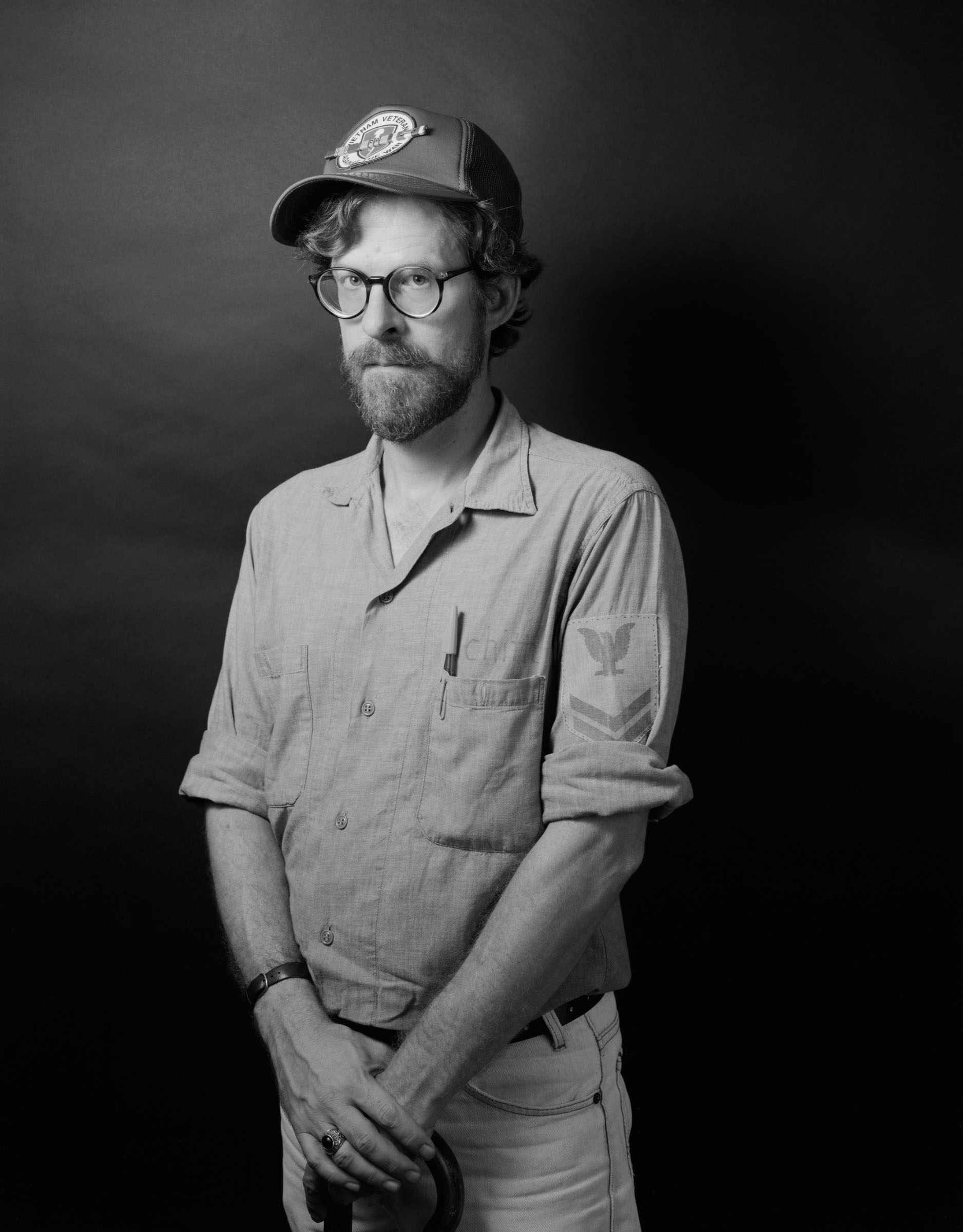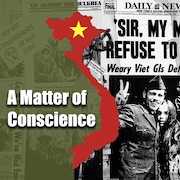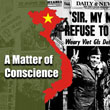
I didn’t have any objections to going into the Navy, it was something that I figured was expected of me. All of my male relatives had served in the Navy and I felt it was my duty to do it. I wasn’t a super patriot exactly. I’d been brought up in this very Christian background, highly moral background, and for me growing up in the south in the 50s and early 60s, one of the main public issues at the time was the question of integration. My parents were both staunch integrationists, believed in racial equality, believed in the integration of the public schools and I was involved in some of the civil rights activity in the south in the mid-1960s. I also been brought up in a very strong anti-communist atmosphere.
I read Dr. Tom Dooley’s books about Vietnam, about the massacres of the Catholic refugees from North Vietnam after North Vietnam split off from South Vietnam in the early 1950s, the Hungarian freedom fighters in 1956. I was nine years old then, they were heroic figures to me.
I believed in the fight against communism and believed in the totalitarian evil of the communist system. I believed that the United States’ involvement in Vietnam – maybe there was some mistakes being made – but the general purpose of the whole effort was something I believed in and this was reinforced quite strongly and purposefully during recruit training.
I was assigned to a guided missile frigate ship, the USS Richmond K. Turner, DLG 20, homeported in San Diego, California and part of Destroyer Squadron 21. We did one tour in Vietnam, then came back to the States, which is the first time I came in contact with the anti-war movement at all. Right before we left again, the ship was in San Diego when Martin Luther King was killed. Martin Luther King had always been a personal hero of mine. I’d met him a couple of times, I didn’t know him, but you know, I had shaken hands with him and I had listened to him speak and I admired him tremendously. I was put on the Shore Patrol when the black community in San Diego took to the streets to burn out some stores and tear down some telephone booths and generally exhibit their pain and grief and frustration over this assassination of a guy that seemed to me, and must have seemed to them, to be one of the few hopes for peaceful resolution to the racial problem in the United States.
I found myself carrying a .45, wearing a uniform, involved in what was an effective police or military operation against fellow United States citizens who were upset about something that I was upset about. After the first night I refused to go back on that shore patrol and I started wearing a black armband to show mourning. People didn’t like that much in the Navy. But I wore it for a couple of weeks.
When I got back to Vietnam in early June of 1968, things had changed alot. It was after Tet and it was after Lyndon Johnson had gone on TV and said he wasn’t going to run for reelection and he was going to spend all of his time trying to make peace in Vietnam. I began to consider whether or not the war might, in fact, be wrong.
The problem wasn’t just individual incompetence or corruption, but there was something wrong with a whole system where alot of people had to be poor so a few could be rich. That I learned from Martin Luther King.
Archived Material
No posts
Podcasts
No posts


